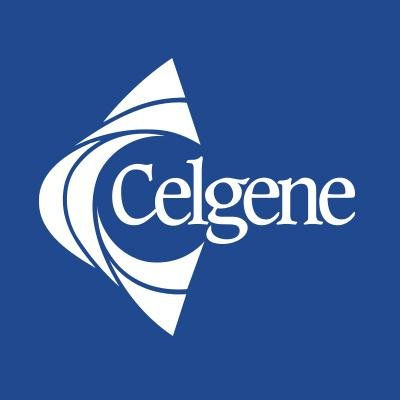预约演示
更新于:2025-05-07
Aase Smith Syndrome 2
Aase Smith综合征II型
更新于:2025-05-07
基本信息
别名 AASE-SMITH SYNDROME II、Aase Smith II syndrome、Aase Smith syndrome 2 + [28] |
简介 Congenital pure red cell aplasia caused by autosomal dominant mutation(s) in the RPL5 gene, encoding 60S ribosomal protein L5. |
关联
1
项与 Aase Smith综合征II型 相关的药物作用机制 CK1α抑制剂 [+3] |
在研机构 |
原研机构 |
非在研适应症 |
最高研发阶段批准上市 |
首次获批国家/地区 美国 |
首次获批日期2005-12-27 |
9
项与 Aase Smith综合征II型 相关的临床试验NCT06796491
Effects of Post Isometric Relaxation and Post Facilitation Stretch on Pain, Range of Motion and Disability in Patients With Tight Hamstrings Syndrome
This randomized clinical trial aims to compare the effects of post-isometric relaxation (PIR) and post-facilitation stretch (PFS) on pain, range of motion, and disability in individuals with tight hamstring syndrome. Conducted at Riphah Rehabilitation Clinic, Lahore, participants aged 18-35 years with posterior thigh pain will be divided into two groups. Both groups will receive hot pack therapy and core strengthening exercises, with Group A receiving PIR and Group B receiving PFS. Outcomes will be assessed at baseline and after 4 weeks using NPRS, a disability questionnaire, and a goniometer, with data analyzed using SPSS version 25.
开始日期2025-02-01 |
JPRN-jRCT1030220157
Genetic analyses in patients with T or NK cells-associated disorders
开始日期2022-07-31 |
申办/合作机构- |
NCT05652452
Neurodynamic Sliders Promote Flexibility in Tight Hamstring Syndrome
The goal of this study is to explore the intervention effect of home-based neurodynamic slider program on hamstring flexibility. Fifty physically active male subjects will be randomly assigned to either performing a neurodynamic sliding technique (3x20 reps) or a static stretching protocol (3x30") on a daily basis for a 6-week period. Hamstring flexibility will be assessed by means of the Straight Leg Raise at baseline, immediately after the intervention and after 4 weeks follow up.
开始日期2017-01-01 |
申办/合作机构 |
100 项与 Aase Smith综合征II型 相关的临床结果
登录后查看更多信息
100 项与 Aase Smith综合征II型 相关的转化医学
登录后查看更多信息
0 项与 Aase Smith综合征II型 相关的专利(医药)
登录后查看更多信息
1,743
项与 Aase Smith综合征II型 相关的文献(医药)2025-12-01·Child's Nervous System
A rare case of split notochord syndrome with neurenteric cyst: clinical challenges, surgical approach, and literature review
Review
作者: Musso, Sofia ; Barretta, Ida ; Rossi, Andrea ; Pavanello, Marco ; Piatelli, Gianluca
2025-12-01·Techniques in Coloproctology
Transanal minimally invasive (TAMIS) mucosal resection with muscular plication for patients with obstructed defecation syndrome—A prospective pilot study
Article
作者: Riss, S ; Gidl, D ; Widmann, K M ; Dawoud, C
2025-06-01·Pediatric Blood & Cancer
Infantile Pure Red Cell Aplasia Secondary to Deficiency of Adenosine Deaminase2 (DADA2) Syndrome—Time to Think Beyond Diamond Blackfan Anemia
Article
作者: Nayak, Amiya Ranjan ; Gudapati, Pratyusha ; Mahapatra, Manoranjan ; Kumar, Pradeep ; Chauhan, Richa ; Dass, Jasmita ; Dhawan, Rishi ; Seth, Tulika ; Parikh, Himil ; Viswanathan, Ganesh Kumar ; Tripathi, Swapnil ; Aggarwal, Mukul ; Bagri, Narendra Kumar ; Verghese, Renjith
1
项与 Aase Smith综合征II型 相关的新闻(医药)2025-01-02
近日,美国肾脏基金会(NKF)官方期刊《肾脏医学》(Kidney Medicine)发表了由上海交通大学医学院附属第一人民医院肾内科范秋灵教授主导研究的一篇有关促红细胞生成素(EPO)模拟肽——培莫沙肽(商品名:圣罗莱®)的病例报告。该报告首次显示了培莫沙肽能够有效治疗EPO诱导的纯红细胞再生障碍性贫血(PRCA)患者,且安全性良好1,为这种罕见但严重的并发症提供了一种颇具前景的创新解决方案。 为探索培莫沙肽对于已经出现EPO诱导的PRCA患者的治疗作用,上海交通大学医学院附属第一人民医院肾内科首次在1例1型糖尿病肾病的非透析中国患者中评估培莫沙肽对于EPO相关PRCA的疗效,该研究结果近期发表于Kidney Medicine。研究证明了培莫沙肽在治疗EPO诱导的PRCA方面的潜力,尽管该患者的抗EPO抗体检测结果呈阴性,但其临床病程、网织红细胞计数显著减少、骨髓活检显示成红细胞减少,以及随后对EPO模拟肽的治疗反应,均一致证明了的确是EPO治疗引起的PRCA1。培莫沙肽显著改善了该患者的Hb水平和贫血症状,并且尚未发现明显的不良反应1,从而为临床治疗EPO诱导的PRCA提供了新的安全、有效且便捷的解决方案。 上海交通大学医学院附属第一人民医院肾内科主任范秋灵教授表示: 此前临床上对于EPO诱导的PRCA缺乏有效的治疗手段,无论是免疫抑制剂的使用还是输血都会给患者带来额外的安全性风险,治疗不及时还会增加心血管疾病和死亡风险。培莫沙肽是一种具有全新机制的EPO模拟肽,与天然EPO无氨基酸序列同源性,一方面,不会与EPO产生交叉免疫反应,能够避免抗EPO抗体介导的PRCA的发生;另一方面,培莫沙肽对于那些传统ESA治疗引起的PRCA还具有潜在的治疗价值,未来还需要开展多中心的临床试验,以进一步验证培莫沙肽对PRCA患者的疗效以及长期治疗的安全性。 关于圣罗莱® 圣罗莱®是翰森制药自主研发的全球唯一获批上市的EPO模拟肽,为新型长效ESA类药物,其半衰期是短效重组人促红细胞生成素(rHuEPO)的10倍以上,每4周一次给药,可提高患者用药依从性,增加HGB达标率。由于其氨基酸序列与EPO不同,因此与内源性EPO无交叉抗原性,理论上不会引起EPO抗体介导的纯红细胞再生障碍性贫血(PRCA)风险,甚至还对EPO抗体介导PRCA具有潜在的治疗作用。圣罗莱®于2023年6月获中国国家药品监督管理局批准上市,适用于治疗因CKD引起的贫血,包括未接受ESA治疗的成人非透析患者,及正在接受短效EPO治疗的成人透析患者。圣罗莱®是翰森制药获批上市的第7款创新药,也是翰森制药首款同时获批两项适应症的创新药。 关于EPO诱导的PRCA 贫血是慢性肾脏病(CKD)患者常见的并发症之一,我国非透析CKD患者中有28.5%~51.5%患有贫血。红细胞生成刺激剂(ESAs)是CKD相关贫血的标准治疗方案,在临床已广泛应用多年。然而,ESAs治疗过程中有可能会出现低反应,从而导致贫血控制不佳。引起ESAs低反应的原因有很多,例如铁缺乏、慢性炎症、透析不充分等等。此外,EPO诱导的PRCA也是导致ESAs低反应的可能原因,其表现为红细胞生成的严重不足,患者往往需要输血以维持血红蛋白(Hb)水平。虽然EPO诱导的PRCA在临床上很罕见,但却会严重威胁患者的生命2。 培莫沙肽是是一种人工合成的聚乙二醇化EPO模拟肽,与EPO具有类似的生物学活性,能够结合并激活EPO受体,从而刺激红细胞生成。由于培莫沙肽与EPO无氨基酸序列同源性,理论上不会与内源性EPO发生交叉抗原性,因此有助于避免PRCA的发生3。 关于Kidney Medicine 《肾脏医学》(Kidney Medicine)是一本专注于肾脏病学和高血压领域的临床医学期刊。该期刊是美国肾脏基金会(National Kidney Foundation)的官方期刊,旨在传播与肾脏疾病患者护理相关的知识。Kidney Medicine 涉及的文章包括原创研究、病例报告和综述分析等。该刊目前影响因子为3.2,CiteScore指数值为4.8。4 关于翰森制药 翰森制药是中国领先的创新驱动型制药企业,下属豪森药业、常州恒邦药业、翰森生物医药等子公司,重点关注抗肿瘤、抗感染、中枢神经系统、代谢及自身免疫等重大疾病治疗领域,致力于通过持续创新提高人类生命质量。截至2024上半年,公司已上市7款创新药,创新产品营收占比达77.4%。公司连续多年位居全球制药企业百强、中国医药研发产品线最佳工业企业前3强,是国家重点高新技术企业、国家技术创新示范企业。公司于2019年6月在香港联交所挂牌上市(股票代码:03692.HK)。更多信息请访问:https://cn.hspharm.com/。 参考文献:1.https://www.sciencedirect.com/science/article/pii/S2590059524001584.2.中国医师协会肾脏内科医师分会肾性贫血指南工作组. 中国肾性贫血诊治临床实践指南[J]. 中华医学杂志,2021,101(20):1463-1502.3.中国非公立医院协会肾病透析专业委员会共识专家组. 长效红细胞生成刺激剂治疗肾性贫血中国专家共识(2024年版)[J]. 中华肾脏病杂志,2024,40(2):146-157.4.https://www.sciencedirect.com/journal/kidney-medicine/
近日,美国肾脏基金会(NKF)官方期刊《肾脏医学》(Kidney Medicine)发表了由上海交通大学医学院附属第一人民医院肾内科范秋灵教授主导研究的一篇有关促红细胞生成素(EPO)模拟肽——培莫沙肽(商品名:圣罗莱®)的病例报告。该报告首次显示了培莫沙肽能够有效治疗EPO诱导的纯红细胞再生障碍性贫血(PRCA)患者,且安全性良好1,为这种罕见但严重的并发症提供了一种颇具前景的创新解决方案。
近日,美国肾脏基金会(NKF)官方期刊《肾脏医学》(Kidney Medicine)发表了由上海交通大学医学院附属第一人民医院肾内科范秋灵教授主导研究的一篇有关促红细胞生成素(EPO)模拟肽——培莫沙肽(商品名:圣罗莱®)的病例报告。该报告首次显示了培莫沙肽能够有效治疗EPO诱导的纯红细胞再生障碍性贫血(PRCA)患者,且安全性良好1,为这种罕见但严重的并发症提供了一种颇具前景的创新解决方案。
近日,美国肾脏基金会(NKF)官方期刊《肾脏医学》(Kidney Medicine)发表了由上海交通大学医学院附属第一人民医院肾内科范秋灵教授主导研究的一篇有关促红细胞生成素(EPO)模拟肽——培莫沙肽(商品名:圣罗莱®)的病例报告。该报告首次显示了培莫沙肽能够有效治疗EPO诱导的纯红细胞再生障碍性贫血(PRCA)患者,且安全性良好1,为这种罕见但严重的并发症提供了一种颇具前景的创新解决方案。
近日,美国肾脏基金会(NKF)官方期刊《肾脏医学》(Kidney Medicine)发表了由上海交通大学医学院附属第一人民医院肾内科范秋灵教授主导研究的一篇有关促红细胞生成素(EPO)模拟肽——培莫沙肽(商品名:圣罗莱®)的病例报告。该报告首次显示了培莫沙肽能够有效治疗EPO诱导的纯红细胞再生障碍性贫血(PRCA)患者,且安全性良好1,为这种罕见但严重的并发症提供了一种颇具前景的创新解决方案。
近日,美国肾脏基金会(NKF)官方期刊《肾脏医学》(Kidney Medicine)发表了由上海交通大学医学院附属第一人民医院肾内科范秋灵教授主导研究的一篇有关促红细胞生成素(EPO)模拟肽——培莫沙肽(商品名:圣罗莱®)的病例报告。
该报告首次显示了培莫沙肽能够有效治疗EPO诱导的纯红细胞再生障碍性贫血(PRCA)患者,且安全性良好1,为这种罕见但严重的并发症提供了一种颇具前景的创新解决方案。
为探索培莫沙肽对于已经出现EPO诱导的PRCA患者的治疗作用,上海交通大学医学院附属第一人民医院肾内科首次在1例1型糖尿病肾病的非透析中国患者中评估培莫沙肽对于EPO相关PRCA的疗效,该研究结果近期发表于Kidney Medicine。研究证明了培莫沙肽在治疗EPO诱导的PRCA方面的潜力,尽管该患者的抗EPO抗体检测结果呈阴性,但其临床病程、网织红细胞计数显著减少、骨髓活检显示成红细胞减少,以及随后对EPO模拟肽的治疗反应,均一致证明了的确是EPO治疗引起的PRCA1。培莫沙肽显著改善了该患者的Hb水平和贫血症状,并且尚未发现明显的不良反应1,从而为临床治疗EPO诱导的PRCA提供了新的安全、有效且便捷的解决方案。 上海交通大学医学院附属第一人民医院肾内科主任范秋灵教授表示: 此前临床上对于EPO诱导的PRCA缺乏有效的治疗手段,无论是免疫抑制剂的使用还是输血都会给患者带来额外的安全性风险,治疗不及时还会增加心血管疾病和死亡风险。培莫沙肽是一种具有全新机制的EPO模拟肽,与天然EPO无氨基酸序列同源性,一方面,不会与EPO产生交叉免疫反应,能够避免抗EPO抗体介导的PRCA的发生;另一方面,培莫沙肽对于那些传统ESA治疗引起的PRCA还具有潜在的治疗价值,未来还需要开展多中心的临床试验,以进一步验证培莫沙肽对PRCA患者的疗效以及长期治疗的安全性。 关于圣罗莱® 圣罗莱®是翰森制药自主研发的全球唯一获批上市的EPO模拟肽,为新型长效ESA类药物,其半衰期是短效重组人促红细胞生成素(rHuEPO)的10倍以上,每4周一次给药,可提高患者用药依从性,增加HGB达标率。由于其氨基酸序列与EPO不同,因此与内源性EPO无交叉抗原性,理论上不会引起EPO抗体介导的纯红细胞再生障碍性贫血(PRCA)风险,甚至还对EPO抗体介导PRCA具有潜在的治疗作用。圣罗莱®于2023年6月获中国国家药品监督管理局批准上市,适用于治疗因CKD引起的贫血,包括未接受ESA治疗的成人非透析患者,及正在接受短效EPO治疗的成人透析患者。圣罗莱®是翰森制药获批上市的第7款创新药,也是翰森制药首款同时获批两项适应症的创新药。 关于EPO诱导的PRCA 贫血是慢性肾脏病(CKD)患者常见的并发症之一,我国非透析CKD患者中有28.5%~51.5%患有贫血。红细胞生成刺激剂(ESAs)是CKD相关贫血的标准治疗方案,在临床已广泛应用多年。然而,ESAs治疗过程中有可能会出现低反应,从而导致贫血控制不佳。引起ESAs低反应的原因有很多,例如铁缺乏、慢性炎症、透析不充分等等。此外,EPO诱导的PRCA也是导致ESAs低反应的可能原因,其表现为红细胞生成的严重不足,患者往往需要输血以维持血红蛋白(Hb)水平。虽然EPO诱导的PRCA在临床上很罕见,但却会严重威胁患者的生命2。 培莫沙肽是是一种人工合成的聚乙二醇化EPO模拟肽,与EPO具有类似的生物学活性,能够结合并激活EPO受体,从而刺激红细胞生成。由于培莫沙肽与EPO无氨基酸序列同源性,理论上不会与内源性EPO发生交叉抗原性,因此有助于避免PRCA的发生3。 关于Kidney Medicine 《肾脏医学》(Kidney Medicine)是一本专注于肾脏病学和高血压领域的临床医学期刊。该期刊是美国肾脏基金会(National Kidney Foundation)的官方期刊,旨在传播与肾脏疾病患者护理相关的知识。Kidney Medicine 涉及的文章包括原创研究、病例报告和综述分析等。该刊目前影响因子为3.2,CiteScore指数值为4.8。4 关于翰森制药 翰森制药是中国领先的创新驱动型制药企业,下属豪森药业、常州恒邦药业、翰森生物医药等子公司,重点关注抗肿瘤、抗感染、中枢神经系统、代谢及自身免疫等重大疾病治疗领域,致力于通过持续创新提高人类生命质量。截至2024上半年,公司已上市7款创新药,创新产品营收占比达77.4%。公司连续多年位居全球制药企业百强、中国医药研发产品线最佳工业企业前3强,是国家重点高新技术企业、国家技术创新示范企业。公司于2019年6月在香港联交所挂牌上市(股票代码:03692.HK)。更多信息请访问:https://cn.hspharm.com/。 参考文献:1.https://www.sciencedirect.com/science/article/pii/S2590059524001584.2.中国医师协会肾脏内科医师分会肾性贫血指南工作组. 中国肾性贫血诊治临床实践指南[J]. 中华医学杂志,2021,101(20):1463-1502.3.中国非公立医院协会肾病透析专业委员会共识专家组. 长效红细胞生成刺激剂治疗肾性贫血中国专家共识(2024年版)[J]. 中华肾脏病杂志,2024,40(2):146-157.4.https://www.sciencedirect.com/journal/kidney-medicine/
为探索培莫沙肽对于已经出现EPO诱导的PRCA患者的治疗作用,上海交通大学医学院附属第一人民医院肾内科首次在1例1型糖尿病肾病的非透析中国患者中评估培莫沙肽对于EPO相关PRCA的疗效,该研究结果近期发表于Kidney Medicine。
研究证明了培莫沙肽在治疗EPO诱导的PRCA方面的潜力,尽管该患者的抗EPO抗体检测结果呈阴性,但其临床病程、网织红细胞计数显著减少、骨髓活检显示成红细胞减少,以及随后对EPO模拟肽的治疗反应,均一致证明了的确是EPO治疗引起的PRCA1。培莫沙肽显著改善了该患者的Hb水平和贫血症状,并且尚未发现明显的不良反应1,从而为临床治疗EPO诱导的PRCA提供了新的安全、有效且便捷的解决方案。
上海交通大学医学院附属第一人民医院肾内科主任范秋灵教授表示: 此前临床上对于EPO诱导的PRCA缺乏有效的治疗手段,无论是免疫抑制剂的使用还是输血都会给患者带来额外的安全性风险,治疗不及时还会增加心血管疾病和死亡风险。培莫沙肽是一种具有全新机制的EPO模拟肽,与天然EPO无氨基酸序列同源性,一方面,不会与EPO产生交叉免疫反应,能够避免抗EPO抗体介导的PRCA的发生;另一方面,培莫沙肽对于那些传统ESA治疗引起的PRCA还具有潜在的治疗价值,未来还需要开展多中心的临床试验,以进一步验证培莫沙肽对PRCA患者的疗效以及长期治疗的安全性。
上海交通大学医学院附属第一人民医院肾内科主任范秋灵教授表示: 此前临床上对于EPO诱导的PRCA缺乏有效的治疗手段,无论是免疫抑制剂的使用还是输血都会给患者带来额外的安全性风险,治疗不及时还会增加心血管疾病和死亡风险。培莫沙肽是一种具有全新机制的EPO模拟肽,与天然EPO无氨基酸序列同源性,一方面,不会与EPO产生交叉免疫反应,能够避免抗EPO抗体介导的PRCA的发生;另一方面,培莫沙肽对于那些传统ESA治疗引起的PRCA还具有潜在的治疗价值,未来还需要开展多中心的临床试验,以进一步验证培莫沙肽对PRCA患者的疗效以及长期治疗的安全性。
上海交通大学医学院附属第一人民医院肾内科主任范秋灵教授表示: 此前临床上对于EPO诱导的PRCA缺乏有效的治疗手段,无论是免疫抑制剂的使用还是输血都会给患者带来额外的安全性风险,治疗不及时还会增加心血管疾病和死亡风险。培莫沙肽是一种具有全新机制的EPO模拟肽,与天然EPO无氨基酸序列同源性,一方面,不会与EPO产生交叉免疫反应,能够避免抗EPO抗体介导的PRCA的发生;另一方面,培莫沙肽对于那些传统ESA治疗引起的PRCA还具有潜在的治疗价值,未来还需要开展多中心的临床试验,以进一步验证培莫沙肽对PRCA患者的疗效以及长期治疗的安全性。
上海交通大学医学院附属第一人民医院肾内科主任范秋灵教授表示: 此前临床上对于EPO诱导的PRCA缺乏有效的治疗手段,无论是免疫抑制剂的使用还是输血都会给患者带来额外的安全性风险,治疗不及时还会增加心血管疾病和死亡风险。培莫沙肽是一种具有全新机制的EPO模拟肽,与天然EPO无氨基酸序列同源性,一方面,不会与EPO产生交叉免疫反应,能够避免抗EPO抗体介导的PRCA的发生;另一方面,培莫沙肽对于那些传统ESA治疗引起的PRCA还具有潜在的治疗价值,未来还需要开展多中心的临床试验,以进一步验证培莫沙肽对PRCA患者的疗效以及长期治疗的安全性。
上海交通大学医学院附属第一人民医院肾内科主任范秋灵教授表示:
上海交通大学医学院附属第一人民医院肾内科主任范秋灵教授表示:
此前临床上对于EPO诱导的PRCA缺乏有效的治疗手段,无论是免疫抑制剂的使用还是输血都会给患者带来额外的安全性风险,治疗不及时还会增加心血管疾病和死亡风险。培莫沙肽是一种具有全新机制的EPO模拟肽,与天然EPO无氨基酸序列同源性,一方面,不会与EPO产生交叉免疫反应,能够避免抗EPO抗体介导的PRCA的发生;另一方面,培莫沙肽对于那些传统ESA治疗引起的PRCA还具有潜在的治疗价值,未来还需要开展多中心的临床试验,以进一步验证培莫沙肽对PRCA患者的疗效以及长期治疗的安全性。
关于圣罗莱® 圣罗莱®是翰森制药自主研发的全球唯一获批上市的EPO模拟肽,为新型长效ESA类药物,其半衰期是短效重组人促红细胞生成素(rHuEPO)的10倍以上,每4周一次给药,可提高患者用药依从性,增加HGB达标率。由于其氨基酸序列与EPO不同,因此与内源性EPO无交叉抗原性,理论上不会引起EPO抗体介导的纯红细胞再生障碍性贫血(PRCA)风险,甚至还对EPO抗体介导PRCA具有潜在的治疗作用。圣罗莱®于2023年6月获中国国家药品监督管理局批准上市,适用于治疗因CKD引起的贫血,包括未接受ESA治疗的成人非透析患者,及正在接受短效EPO治疗的成人透析患者。圣罗莱®是翰森制药获批上市的第7款创新药,也是翰森制药首款同时获批两项适应症的创新药。
关于圣罗莱® 圣罗莱®是翰森制药自主研发的全球唯一获批上市的EPO模拟肽,为新型长效ESA类药物,其半衰期是短效重组人促红细胞生成素(rHuEPO)的10倍以上,每4周一次给药,可提高患者用药依从性,增加HGB达标率。由于其氨基酸序列与EPO不同,因此与内源性EPO无交叉抗原性,理论上不会引起EPO抗体介导的纯红细胞再生障碍性贫血(PRCA)风险,甚至还对EPO抗体介导PRCA具有潜在的治疗作用。圣罗莱®于2023年6月获中国国家药品监督管理局批准上市,适用于治疗因CKD引起的贫血,包括未接受ESA治疗的成人非透析患者,及正在接受短效EPO治疗的成人透析患者。圣罗莱®是翰森制药获批上市的第7款创新药,也是翰森制药首款同时获批两项适应症的创新药。
关于圣罗莱® 圣罗莱®是翰森制药自主研发的全球唯一获批上市的EPO模拟肽,为新型长效ESA类药物,其半衰期是短效重组人促红细胞生成素(rHuEPO)的10倍以上,每4周一次给药,可提高患者用药依从性,增加HGB达标率。由于其氨基酸序列与EPO不同,因此与内源性EPO无交叉抗原性,理论上不会引起EPO抗体介导的纯红细胞再生障碍性贫血(PRCA)风险,甚至还对EPO抗体介导PRCA具有潜在的治疗作用。圣罗莱®于2023年6月获中国国家药品监督管理局批准上市,适用于治疗因CKD引起的贫血,包括未接受ESA治疗的成人非透析患者,及正在接受短效EPO治疗的成人透析患者。圣罗莱®是翰森制药获批上市的第7款创新药,也是翰森制药首款同时获批两项适应症的创新药。
关于圣罗莱®
关于圣罗莱®
圣罗莱®是翰森制药自主研发的全球唯一获批上市的EPO模拟肽,为新型长效ESA类药物,其半衰期是短效重组人促红细胞生成素(rHuEPO)的10倍以上,每4周一次给药,可提高患者用药依从性,增加HGB达标率。由于其氨基酸序列与EPO不同,因此与内源性EPO无交叉抗原性,理论上不会引起EPO抗体介导的纯红细胞再生障碍性贫血(PRCA)风险,甚至还对EPO抗体介导PRCA具有潜在的治疗作用。圣罗莱®于2023年6月获中国国家药品监督管理局批准上市,适用于治疗因CKD引起的贫血,包括未接受ESA治疗的成人非透析患者,及正在接受短效EPO治疗的成人透析患者。圣罗莱®是翰森制药获批上市的第7款创新药,也是翰森制药首款同时获批两项适应症的创新药。
圣罗莱®是翰森制药自主研发的全球唯一获批上市的EPO模拟肽,为新型长效ESA类药物,其半衰期是短效重组人促红细胞生成素(rHuEPO)的10倍以上,每4周一次给药,可提高患者用药依从性,增加HGB达标率。由于其氨基酸序列与EPO不同,因此与内源性EPO无交叉抗原性,理论上不会引起EPO抗体介导的纯红细胞再生障碍性贫血(PRCA)风险,甚至还对EPO抗体介导PRCA具有潜在的治疗作用。圣罗莱®于2023年6月获中国国家药品监督管理局批准上市,适用于治疗因CKD引起的贫血,包括未接受ESA治疗的成人非透析患者,及正在接受短效EPO治疗的成人透析患者。圣罗莱®是翰森制药获批上市的第7款创新药,也是翰森制药首款同时获批两项适应症的创新药。
圣罗莱®是翰森制药自主研发的全球唯一获批上市的EPO模拟肽,为新型长效ESA类药物,其半衰期是短效重组人促红细胞生成素(rHuEPO)的10倍以上,每4周一次给药,可提高患者用药依从性,增加HGB达标率。由于其氨基酸序列与EPO不同,因此与内源性EPO无交叉抗原性,理论上不会引起EPO抗体介导的纯红细胞再生障碍性贫血(PRCA)风险,甚至还对EPO抗体介导PRCA具有潜在的治疗作用。圣罗莱®于2023年6月获中国国家药品监督管理局批准上市,适用于治疗因CKD引起的贫血,包括未接受ESA治疗的成人非透析患者,及正在接受短效EPO治疗的成人透析患者。圣罗莱®是翰森制药获批上市的第7款创新药,也是翰森制药首款同时获批两项适应症的创新药。
关于EPO诱导的PRCA 贫血是慢性肾脏病(CKD)患者常见的并发症之一,我国非透析CKD患者中有28.5%~51.5%患有贫血。红细胞生成刺激剂(ESAs)是CKD相关贫血的标准治疗方案,在临床已广泛应用多年。然而,ESAs治疗过程中有可能会出现低反应,从而导致贫血控制不佳。引起ESAs低反应的原因有很多,例如铁缺乏、慢性炎症、透析不充分等等。此外,EPO诱导的PRCA也是导致ESAs低反应的可能原因,其表现为红细胞生成的严重不足,患者往往需要输血以维持血红蛋白(Hb)水平。虽然EPO诱导的PRCA在临床上很罕见,但却会严重威胁患者的生命2。 培莫沙肽是是一种人工合成的聚乙二醇化EPO模拟肽,与EPO具有类似的生物学活性,能够结合并激活EPO受体,从而刺激红细胞生成。由于培莫沙肽与EPO无氨基酸序列同源性,理论上不会与内源性EPO发生交叉抗原性,因此有助于避免PRCA的发生3。
关于EPO诱导的PRCA 贫血是慢性肾脏病(CKD)患者常见的并发症之一,我国非透析CKD患者中有28.5%~51.5%患有贫血。红细胞生成刺激剂(ESAs)是CKD相关贫血的标准治疗方案,在临床已广泛应用多年。然而,ESAs治疗过程中有可能会出现低反应,从而导致贫血控制不佳。引起ESAs低反应的原因有很多,例如铁缺乏、慢性炎症、透析不充分等等。此外,EPO诱导的PRCA也是导致ESAs低反应的可能原因,其表现为红细胞生成的严重不足,患者往往需要输血以维持血红蛋白(Hb)水平。虽然EPO诱导的PRCA在临床上很罕见,但却会严重威胁患者的生命2。 培莫沙肽是是一种人工合成的聚乙二醇化EPO模拟肽,与EPO具有类似的生物学活性,能够结合并激活EPO受体,从而刺激红细胞生成。由于培莫沙肽与EPO无氨基酸序列同源性,理论上不会与内源性EPO发生交叉抗原性,因此有助于避免PRCA的发生3。
关于EPO诱导的PRCA 贫血是慢性肾脏病(CKD)患者常见的并发症之一,我国非透析CKD患者中有28.5%~51.5%患有贫血。红细胞生成刺激剂(ESAs)是CKD相关贫血的标准治疗方案,在临床已广泛应用多年。然而,ESAs治疗过程中有可能会出现低反应,从而导致贫血控制不佳。引起ESAs低反应的原因有很多,例如铁缺乏、慢性炎症、透析不充分等等。此外,EPO诱导的PRCA也是导致ESAs低反应的可能原因,其表现为红细胞生成的严重不足,患者往往需要输血以维持血红蛋白(Hb)水平。虽然EPO诱导的PRCA在临床上很罕见,但却会严重威胁患者的生命2。 培莫沙肽是是一种人工合成的聚乙二醇化EPO模拟肽,与EPO具有类似的生物学活性,能够结合并激活EPO受体,从而刺激红细胞生成。由于培莫沙肽与EPO无氨基酸序列同源性,理论上不会与内源性EPO发生交叉抗原性,因此有助于避免PRCA的发生3。
关于EPO诱导的PRCA
关于EPO诱导的PRCA
贫血是慢性肾脏病(CKD)患者常见的并发症之一,我国非透析CKD患者中有28.5%~51.5%患有贫血。红细胞生成刺激剂(ESAs)是CKD相关贫血的标准治疗方案,在临床已广泛应用多年。然而,ESAs治疗过程中有可能会出现低反应,从而导致贫血控制不佳。引起ESAs低反应的原因有很多,例如铁缺乏、慢性炎症、透析不充分等等。此外,EPO诱导的PRCA也是导致ESAs低反应的可能原因,其表现为红细胞生成的严重不足,患者往往需要输血以维持血红蛋白(Hb)水平。虽然EPO诱导的PRCA在临床上很罕见,但却会严重威胁患者的生命2。 培莫沙肽是是一种人工合成的聚乙二醇化EPO模拟肽,与EPO具有类似的生物学活性,能够结合并激活EPO受体,从而刺激红细胞生成。由于培莫沙肽与EPO无氨基酸序列同源性,理论上不会与内源性EPO发生交叉抗原性,因此有助于避免PRCA的发生3。
贫血是慢性肾脏病(CKD)患者常见的并发症之一,我国非透析CKD患者中有28.5%~51.5%患有贫血。红细胞生成刺激剂(ESAs)是CKD相关贫血的标准治疗方案,在临床已广泛应用多年。然而,ESAs治疗过程中有可能会出现低反应,从而导致贫血控制不佳。引起ESAs低反应的原因有很多,例如铁缺乏、慢性炎症、透析不充分等等。此外,EPO诱导的PRCA也是导致ESAs低反应的可能原因,其表现为红细胞生成的严重不足,患者往往需要输血以维持血红蛋白(Hb)水平。虽然EPO诱导的PRCA在临床上很罕见,但却会严重威胁患者的生命2。 培莫沙肽是是一种人工合成的聚乙二醇化EPO模拟肽,与EPO具有类似的生物学活性,能够结合并激活EPO受体,从而刺激红细胞生成。由于培莫沙肽与EPO无氨基酸序列同源性,理论上不会与内源性EPO发生交叉抗原性,因此有助于避免PRCA的发生3。
贫血是慢性肾脏病(CKD)患者常见的并发症之一,我国非透析CKD患者中有28.5%~51.5%患有贫血。红细胞生成刺激剂(ESAs)是CKD相关贫血的标准治疗方案,在临床已广泛应用多年。然而,ESAs治疗过程中有可能会出现低反应,从而导致贫血控制不佳。引起ESAs低反应的原因有很多,例如铁缺乏、慢性炎症、透析不充分等等。此外,EPO诱导的PRCA也是导致ESAs低反应的可能原因,其表现为红细胞生成的严重不足,患者往往需要输血以维持血红蛋白(Hb)水平。虽然EPO诱导的PRCA在临床上很罕见,但却会严重威胁患者的生命2。
培莫沙肽是是一种人工合成的聚乙二醇化EPO模拟肽,与EPO具有类似的生物学活性,能够结合并激活EPO受体,从而刺激红细胞生成。由于培莫沙肽与EPO无氨基酸序列同源性,理论上不会与内源性EPO发生交叉抗原性,因此有助于避免PRCA的发生3。
关于Kidney Medicine 《肾脏医学》(Kidney Medicine)是一本专注于肾脏病学和高血压领域的临床医学期刊。该期刊是美国肾脏基金会(National Kidney Foundation)的官方期刊,旨在传播与肾脏疾病患者护理相关的知识。Kidney Medicine 涉及的文章包括原创研究、病例报告和综述分析等。该刊目前影响因子为3.2,CiteScore指数值为4.8。4
关于Kidney Medicine 《肾脏医学》(Kidney Medicine)是一本专注于肾脏病学和高血压领域的临床医学期刊。该期刊是美国肾脏基金会(National Kidney Foundation)的官方期刊,旨在传播与肾脏疾病患者护理相关的知识。Kidney Medicine 涉及的文章包括原创研究、病例报告和综述分析等。该刊目前影响因子为3.2,CiteScore指数值为4.8。4
关于Kidney Medicine 《肾脏医学》(Kidney Medicine)是一本专注于肾脏病学和高血压领域的临床医学期刊。该期刊是美国肾脏基金会(National Kidney Foundation)的官方期刊,旨在传播与肾脏疾病患者护理相关的知识。Kidney Medicine 涉及的文章包括原创研究、病例报告和综述分析等。该刊目前影响因子为3.2,CiteScore指数值为4.8。4
关于Kidney Medicine
关于Kidney Medicine
《肾脏医学》(Kidney Medicine)是一本专注于肾脏病学和高血压领域的临床医学期刊。该期刊是美国肾脏基金会(National Kidney Foundation)的官方期刊,旨在传播与肾脏疾病患者护理相关的知识。Kidney Medicine 涉及的文章包括原创研究、病例报告和综述分析等。该刊目前影响因子为3.2,CiteScore指数值为4.8。4
《肾脏医学》(Kidney Medicine)是一本专注于肾脏病学和高血压领域的临床医学期刊。该期刊是美国肾脏基金会(National Kidney Foundation)的官方期刊,旨在传播与肾脏疾病患者护理相关的知识。Kidney Medicine 涉及的文章包括原创研究、病例报告和综述分析等。该刊目前影响因子为3.2,CiteScore指数值为4.8。4
《肾脏医学》(Kidney Medicine)是一本专注于肾脏病学和高血压领域的临床医学期刊。该期刊是美国肾脏基金会(National Kidney Foundation)的官方期刊,旨在传播与肾脏疾病患者护理相关的知识。Kidney Medicine 涉及的文章包括原创研究、病例报告和综述分析等。该刊目前影响因子为3.2,CiteScore指数值为4.8。4
关于翰森制药 翰森制药是中国领先的创新驱动型制药企业,下属豪森药业、常州恒邦药业、翰森生物医药等子公司,重点关注抗肿瘤、抗感染、中枢神经系统、代谢及自身免疫等重大疾病治疗领域,致力于通过持续创新提高人类生命质量。截至2024上半年,公司已上市7款创新药,创新产品营收占比达77.4%。公司连续多年位居全球制药企业百强、中国医药研发产品线最佳工业企业前3强,是国家重点高新技术企业、国家技术创新示范企业。公司于2019年6月在香港联交所挂牌上市(股票代码:03692.HK)。更多信息请访问:https://cn.hspharm.com/。
关于翰森制药 翰森制药是中国领先的创新驱动型制药企业,下属豪森药业、常州恒邦药业、翰森生物医药等子公司,重点关注抗肿瘤、抗感染、中枢神经系统、代谢及自身免疫等重大疾病治疗领域,致力于通过持续创新提高人类生命质量。截至2024上半年,公司已上市7款创新药,创新产品营收占比达77.4%。公司连续多年位居全球制药企业百强、中国医药研发产品线最佳工业企业前3强,是国家重点高新技术企业、国家技术创新示范企业。公司于2019年6月在香港联交所挂牌上市(股票代码:03692.HK)。更多信息请访问:https://cn.hspharm.com/。
关于翰森制药 翰森制药是中国领先的创新驱动型制药企业,下属豪森药业、常州恒邦药业、翰森生物医药等子公司,重点关注抗肿瘤、抗感染、中枢神经系统、代谢及自身免疫等重大疾病治疗领域,致力于通过持续创新提高人类生命质量。截至2024上半年,公司已上市7款创新药,创新产品营收占比达77.4%。公司连续多年位居全球制药企业百强、中国医药研发产品线最佳工业企业前3强,是国家重点高新技术企业、国家技术创新示范企业。公司于2019年6月在香港联交所挂牌上市(股票代码:03692.HK)。更多信息请访问:https://cn.hspharm.com/。
关于翰森制药
关于翰森制药
翰森制药是中国领先的创新驱动型制药企业,下属豪森药业、常州恒邦药业、翰森生物医药等子公司,重点关注抗肿瘤、抗感染、中枢神经系统、代谢及自身免疫等重大疾病治疗领域,致力于通过持续创新提高人类生命质量。截至2024上半年,公司已上市7款创新药,创新产品营收占比达77.4%。公司连续多年位居全球制药企业百强、中国医药研发产品线最佳工业企业前3强,是国家重点高新技术企业、国家技术创新示范企业。公司于2019年6月在香港联交所挂牌上市(股票代码:03692.HK)。更多信息请访问:https://cn.hspharm.com/。
翰森制药是中国领先的创新驱动型制药企业,下属豪森药业、常州恒邦药业、翰森生物医药等子公司,重点关注抗肿瘤、抗感染、中枢神经系统、代谢及自身免疫等重大疾病治疗领域,致力于通过持续创新提高人类生命质量。截至2024上半年,公司已上市7款创新药,创新产品营收占比达77.4%。公司连续多年位居全球制药企业百强、中国医药研发产品线最佳工业企业前3强,是国家重点高新技术企业、国家技术创新示范企业。公司于2019年6月在香港联交所挂牌上市(股票代码:03692.HK)。更多信息请访问:https://cn.hspharm.com/。
翰森制药是中国领先的创新驱动型制药企业,下属豪森药业、常州恒邦药业、翰森生物医药等子公司,重点关注抗肿瘤、抗感染、中枢神经系统、代谢及自身免疫等重大疾病治疗领域,致力于通过持续创新提高人类生命质量。截至2024上半年,公司已上市7款创新药,创新产品营收占比达77.4%。公司连续多年位居全球制药企业百强、中国医药研发产品线最佳工业企业前3强,是国家重点高新技术企业、国家技术创新示范企业。公司于2019年6月在香港联交所挂牌上市(股票代码:03692.HK)。更多信息请访问:https://cn.hspharm.com/。
参考文献:1.https://www.sciencedirect.com/science/article/pii/S2590059524001584.2.中国医师协会肾脏内科医师分会肾性贫血指南工作组. 中国肾性贫血诊治临床实践指南[J]. 中华医学杂志,2021,101(20):1463-1502.3.中国非公立医院协会肾病透析专业委员会共识专家组. 长效红细胞生成刺激剂治疗肾性贫血中国专家共识(2024年版)[J]. 中华肾脏病杂志,2024,40(2):146-157.4.https://www.sciencedirect.com/journal/kidney-medicine/
参考文献:1.https://www.sciencedirect.com/science/article/pii/S2590059524001584.
2.中国医师协会肾脏内科医师分会肾性贫血指南工作组. 中国肾性贫血诊治临床实践指南[J]. 中华医学杂志,2021,101(20):1463-1502.
3.中国非公立医院协会肾病透析专业委员会共识专家组. 长效红细胞生成刺激剂治疗肾性贫血中国专家共识(2024年版)[J]. 中华肾脏病杂志,2024,40(2):146-157.
4.https://www.sciencedirect.com/journal/kidney-medicine/
声明: 1、翰森制药不推荐任何未获批药品使用或未获批适应症用药。 2、本新闻稿中的医疗信息仅供信息和新闻报道使用,不用于广告目的,不要将其用于医疗保健或诊断建议。 前瞻性说明 本新闻稿旨在提供关于翰森制药集团有限公司及其附属公司(包括其子公司,统称为“翰森制药”)的信息。它不构成对翰森制药或任何投资建议的信息披露。 本新闻稿包含的信息可能包括与翰森制药业务和产品前景、计划、信念、预期和策略相关的前瞻性声明。这些声明是基于推测性假设的预测,并不保证未来的表现。它们受到诸如科学、商业、政治、经济、财务、法律因素以及竞争环境和社会条件等风险和不确定性的影响,这些因素很多都是翰森制药无法控制且难以预测的,因此实际结果可能与此处所述有显著差异,且过去的证券价格趋势不应作为未来行情的指导。因此,投资者在使用这些信息进行投资决策时应谨慎行事。“致力于”“预期”“相信”“预测”“意图”“预计”“可能”“将”“应该”“计划”“继续”“目标”“考虑”“估计”“指导”“潜在”“追求”以及于任何未来计划、行动或事件的讨论中使用的类似词语和术语,均表示前瞻性声明。 翰森制药不承诺或保证前瞻性信息的准确性、及时性或完整性,并且不承担更新或修订这些前瞻性声明的义务。无论是翰森制药还是其任何董事、员工或代理人,均不对任何证明不准确或无法实现的前瞻性声明负责,也不对因依赖本新闻稿中提供的信息而产生的任何损失或损害负责,包括但不限于直接、偶然、间接或惩罚性的损害。 本新闻稿中的所有信息均为发布之日的最新信息。翰森制药不承担因新发展、未来事件或其他情况而更新或修订这些信息的责任,除非法律要求。此外,翰森制药保留在任何时候未经通知对本新闻稿的全部或部分内容进行更改、更正或中断的权利。对于特别与上市公司有关的信息,公司鼓励投资者参考翰森制药(03692.HK)的公告和财务报告。 END
声明: 1、翰森制药不推荐任何未获批药品使用或未获批适应症用药。 2、本新闻稿中的医疗信息仅供信息和新闻报道使用,不用于广告目的,不要将其用于医疗保健或诊断建议。 前瞻性说明 本新闻稿旨在提供关于翰森制药集团有限公司及其附属公司(包括其子公司,统称为“翰森制药”)的信息。它不构成对翰森制药或任何投资建议的信息披露。 本新闻稿包含的信息可能包括与翰森制药业务和产品前景、计划、信念、预期和策略相关的前瞻性声明。这些声明是基于推测性假设的预测,并不保证未来的表现。它们受到诸如科学、商业、政治、经济、财务、法律因素以及竞争环境和社会条件等风险和不确定性的影响,这些因素很多都是翰森制药无法控制且难以预测的,因此实际结果可能与此处所述有显著差异,且过去的证券价格趋势不应作为未来行情的指导。因此,投资者在使用这些信息进行投资决策时应谨慎行事。“致力于”“预期”“相信”“预测”“意图”“预计”“可能”“将”“应该”“计划”“继续”“目标”“考虑”“估计”“指导”“潜在”“追求”以及于任何未来计划、行动或事件的讨论中使用的类似词语和术语,均表示前瞻性声明。 翰森制药不承诺或保证前瞻性信息的准确性、及时性或完整性,并且不承担更新或修订这些前瞻性声明的义务。无论是翰森制药还是其任何董事、员工或代理人,均不对任何证明不准确或无法实现的前瞻性声明负责,也不对因依赖本新闻稿中提供的信息而产生的任何损失或损害负责,包括但不限于直接、偶然、间接或惩罚性的损害。 本新闻稿中的所有信息均为发布之日的最新信息。翰森制药不承担因新发展、未来事件或其他情况而更新或修订这些信息的责任,除非法律要求。此外,翰森制药保留在任何时候未经通知对本新闻稿的全部或部分内容进行更改、更正或中断的权利。对于特别与上市公司有关的信息,公司鼓励投资者参考翰森制药(03692.HK)的公告和财务报告。 END
声明: 1、翰森制药不推荐任何未获批药品使用或未获批适应症用药。 2、本新闻稿中的医疗信息仅供信息和新闻报道使用,不用于广告目的,不要将其用于医疗保健或诊断建议。 前瞻性说明 本新闻稿旨在提供关于翰森制药集团有限公司及其附属公司(包括其子公司,统称为“翰森制药”)的信息。它不构成对翰森制药或任何投资建议的信息披露。 本新闻稿包含的信息可能包括与翰森制药业务和产品前景、计划、信念、预期和策略相关的前瞻性声明。这些声明是基于推测性假设的预测,并不保证未来的表现。它们受到诸如科学、商业、政治、经济、财务、法律因素以及竞争环境和社会条件等风险和不确定性的影响,这些因素很多都是翰森制药无法控制且难以预测的,因此实际结果可能与此处所述有显著差异,且过去的证券价格趋势不应作为未来行情的指导。因此,投资者在使用这些信息进行投资决策时应谨慎行事。“致力于”“预期”“相信”“预测”“意图”“预计”“可能”“将”“应该”“计划”“继续”“目标”“考虑”“估计”“指导”“潜在”“追求”以及于任何未来计划、行动或事件的讨论中使用的类似词语和术语,均表示前瞻性声明。 翰森制药不承诺或保证前瞻性信息的准确性、及时性或完整性,并且不承担更新或修订这些前瞻性声明的义务。无论是翰森制药还是其任何董事、员工或代理人,均不对任何证明不准确或无法实现的前瞻性声明负责,也不对因依赖本新闻稿中提供的信息而产生的任何损失或损害负责,包括但不限于直接、偶然、间接或惩罚性的损害。 本新闻稿中的所有信息均为发布之日的最新信息。翰森制药不承担因新发展、未来事件或其他情况而更新或修订这些信息的责任,除非法律要求。此外,翰森制药保留在任何时候未经通知对本新闻稿的全部或部分内容进行更改、更正或中断的权利。对于特别与上市公司有关的信息,公司鼓励投资者参考翰森制药(03692.HK)的公告和财务报告。 END
声明: 1、翰森制药不推荐任何未获批药品使用或未获批适应症用药。 2、本新闻稿中的医疗信息仅供信息和新闻报道使用,不用于广告目的,不要将其用于医疗保健或诊断建议。 前瞻性说明 本新闻稿旨在提供关于翰森制药集团有限公司及其附属公司(包括其子公司,统称为“翰森制药”)的信息。它不构成对翰森制药或任何投资建议的信息披露。 本新闻稿包含的信息可能包括与翰森制药业务和产品前景、计划、信念、预期和策略相关的前瞻性声明。这些声明是基于推测性假设的预测,并不保证未来的表现。它们受到诸如科学、商业、政治、经济、财务、法律因素以及竞争环境和社会条件等风险和不确定性的影响,这些因素很多都是翰森制药无法控制且难以预测的,因此实际结果可能与此处所述有显著差异,且过去的证券价格趋势不应作为未来行情的指导。因此,投资者在使用这些信息进行投资决策时应谨慎行事。“致力于”“预期”“相信”“预测”“意图”“预计”“可能”“将”“应该”“计划”“继续”“目标”“考虑”“估计”“指导”“潜在”“追求”以及于任何未来计划、行动或事件的讨论中使用的类似词语和术语,均表示前瞻性声明。 翰森制药不承诺或保证前瞻性信息的准确性、及时性或完整性,并且不承担更新或修订这些前瞻性声明的义务。无论是翰森制药还是其任何董事、员工或代理人,均不对任何证明不准确或无法实现的前瞻性声明负责,也不对因依赖本新闻稿中提供的信息而产生的任何损失或损害负责,包括但不限于直接、偶然、间接或惩罚性的损害。 本新闻稿中的所有信息均为发布之日的最新信息。翰森制药不承担因新发展、未来事件或其他情况而更新或修订这些信息的责任,除非法律要求。此外,翰森制药保留在任何时候未经通知对本新闻稿的全部或部分内容进行更改、更正或中断的权利。对于特别与上市公司有关的信息,公司鼓励投资者参考翰森制药(03692.HK)的公告和财务报告。
声明: 1、翰森制药不推荐任何未获批药品使用或未获批适应症用药。 2、本新闻稿中的医疗信息仅供信息和新闻报道使用,不用于广告目的,不要将其用于医疗保健或诊断建议。
声明: 1、翰森制药不推荐任何未获批药品使用或未获批适应症用药。 2、本新闻稿中的医疗信息仅供信息和新闻报道使用,不用于广告目的,不要将其用于医疗保健或诊断建议。
声明: 1、翰森制药不推荐任何未获批药品使用或未获批适应症用药。 2、本新闻稿中的医疗信息仅供信息和新闻报道使用,不用于广告目的,不要将其用于医疗保健或诊断建议。
声明: 1、翰森制药不推荐任何未获批药品使用或未获批适应症用药。 2、本新闻稿中的医疗信息仅供信息和新闻报道使用,不用于广告目的,不要将其用于医疗保健或诊断建议。
声明: 1、翰森制药不推荐任何未获批药品使用或未获批适应症用药。 2、本新闻稿中的医疗信息仅供信息和新闻报道使用,不用于广告目的,不要将其用于医疗保健或诊断建议。
声明: 1、翰森制药不推荐任何未获批药品使用或未获批适应症用药。
2、本新闻稿中的医疗信息仅供信息和新闻报道使用,不用于广告目的,不要将其用于医疗保健或诊断建议。
前瞻性说明 本新闻稿旨在提供关于翰森制药集团有限公司及其附属公司(包括其子公司,统称为“翰森制药”)的信息。它不构成对翰森制药或任何投资建议的信息披露。 本新闻稿包含的信息可能包括与翰森制药业务和产品前景、计划、信念、预期和策略相关的前瞻性声明。这些声明是基于推测性假设的预测,并不保证未来的表现。它们受到诸如科学、商业、政治、经济、财务、法律因素以及竞争环境和社会条件等风险和不确定性的影响,这些因素很多都是翰森制药无法控制且难以预测的,因此实际结果可能与此处所述有显著差异,且过去的证券价格趋势不应作为未来行情的指导。因此,投资者在使用这些信息进行投资决策时应谨慎行事。“致力于”“预期”“相信”“预测”“意图”“预计”“可能”“将”“应该”“计划”“继续”“目标”“考虑”“估计”“指导”“潜在”“追求”以及于任何未来计划、行动或事件的讨论中使用的类似词语和术语,均表示前瞻性声明。 翰森制药不承诺或保证前瞻性信息的准确性、及时性或完整性,并且不承担更新或修订这些前瞻性声明的义务。无论是翰森制药还是其任何董事、员工或代理人,均不对任何证明不准确或无法实现的前瞻性声明负责,也不对因依赖本新闻稿中提供的信息而产生的任何损失或损害负责,包括但不限于直接、偶然、间接或惩罚性的损害。 本新闻稿中的所有信息均为发布之日的最新信息。翰森制药不承担因新发展、未来事件或其他情况而更新或修订这些信息的责任,除非法律要求。此外,翰森制药保留在任何时候未经通知对本新闻稿的全部或部分内容进行更改、更正或中断的权利。对于特别与上市公司有关的信息,公司鼓励投资者参考翰森制药(03692.HK)的公告和财务报告。
前瞻性说明 本新闻稿旨在提供关于翰森制药集团有限公司及其附属公司(包括其子公司,统称为“翰森制药”)的信息。它不构成对翰森制药或任何投资建议的信息披露。 本新闻稿包含的信息可能包括与翰森制药业务和产品前景、计划、信念、预期和策略相关的前瞻性声明。这些声明是基于推测性假设的预测,并不保证未来的表现。它们受到诸如科学、商业、政治、经济、财务、法律因素以及竞争环境和社会条件等风险和不确定性的影响,这些因素很多都是翰森制药无法控制且难以预测的,因此实际结果可能与此处所述有显著差异,且过去的证券价格趋势不应作为未来行情的指导。因此,投资者在使用这些信息进行投资决策时应谨慎行事。“致力于”“预期”“相信”“预测”“意图”“预计”“可能”“将”“应该”“计划”“继续”“目标”“考虑”“估计”“指导”“潜在”“追求”以及于任何未来计划、行动或事件的讨论中使用的类似词语和术语,均表示前瞻性声明。 翰森制药不承诺或保证前瞻性信息的准确性、及时性或完整性,并且不承担更新或修订这些前瞻性声明的义务。无论是翰森制药还是其任何董事、员工或代理人,均不对任何证明不准确或无法实现的前瞻性声明负责,也不对因依赖本新闻稿中提供的信息而产生的任何损失或损害负责,包括但不限于直接、偶然、间接或惩罚性的损害。 本新闻稿中的所有信息均为发布之日的最新信息。翰森制药不承担因新发展、未来事件或其他情况而更新或修订这些信息的责任,除非法律要求。此外,翰森制药保留在任何时候未经通知对本新闻稿的全部或部分内容进行更改、更正或中断的权利。对于特别与上市公司有关的信息,公司鼓励投资者参考翰森制药(03692.HK)的公告和财务报告。
前瞻性说明 本新闻稿旨在提供关于翰森制药集团有限公司及其附属公司(包括其子公司,统称为“翰森制药”)的信息。它不构成对翰森制药或任何投资建议的信息披露。 本新闻稿包含的信息可能包括与翰森制药业务和产品前景、计划、信念、预期和策略相关的前瞻性声明。这些声明是基于推测性假设的预测,并不保证未来的表现。它们受到诸如科学、商业、政治、经济、财务、法律因素以及竞争环境和社会条件等风险和不确定性的影响,这些因素很多都是翰森制药无法控制且难以预测的,因此实际结果可能与此处所述有显著差异,且过去的证券价格趋势不应作为未来行情的指导。因此,投资者在使用这些信息进行投资决策时应谨慎行事。“致力于”“预期”“相信”“预测”“意图”“预计”“可能”“将”“应该”“计划”“继续”“目标”“考虑”“估计”“指导”“潜在”“追求”以及于任何未来计划、行动或事件的讨论中使用的类似词语和术语,均表示前瞻性声明。 翰森制药不承诺或保证前瞻性信息的准确性、及时性或完整性,并且不承担更新或修订这些前瞻性声明的义务。无论是翰森制药还是其任何董事、员工或代理人,均不对任何证明不准确或无法实现的前瞻性声明负责,也不对因依赖本新闻稿中提供的信息而产生的任何损失或损害负责,包括但不限于直接、偶然、间接或惩罚性的损害。 本新闻稿中的所有信息均为发布之日的最新信息。翰森制药不承担因新发展、未来事件或其他情况而更新或修订这些信息的责任,除非法律要求。此外,翰森制药保留在任何时候未经通知对本新闻稿的全部或部分内容进行更改、更正或中断的权利。对于特别与上市公司有关的信息,公司鼓励投资者参考翰森制药(03692.HK)的公告和财务报告。
前瞻性说明 本新闻稿旨在提供关于翰森制药集团有限公司及其附属公司(包括其子公司,统称为“翰森制药”)的信息。它不构成对翰森制药或任何投资建议的信息披露。 本新闻稿包含的信息可能包括与翰森制药业务和产品前景、计划、信念、预期和策略相关的前瞻性声明。这些声明是基于推测性假设的预测,并不保证未来的表现。它们受到诸如科学、商业、政治、经济、财务、法律因素以及竞争环境和社会条件等风险和不确定性的影响,这些因素很多都是翰森制药无法控制且难以预测的,因此实际结果可能与此处所述有显著差异,且过去的证券价格趋势不应作为未来行情的指导。因此,投资者在使用这些信息进行投资决策时应谨慎行事。“致力于”“预期”“相信”“预测”“意图”“预计”“可能”“将”“应该”“计划”“继续”“目标”“考虑”“估计”“指导”“潜在”“追求”以及于任何未来计划、行动或事件的讨论中使用的类似词语和术语,均表示前瞻性声明。 翰森制药不承诺或保证前瞻性信息的准确性、及时性或完整性,并且不承担更新或修订这些前瞻性声明的义务。无论是翰森制药还是其任何董事、员工或代理人,均不对任何证明不准确或无法实现的前瞻性声明负责,也不对因依赖本新闻稿中提供的信息而产生的任何损失或损害负责,包括但不限于直接、偶然、间接或惩罚性的损害。 本新闻稿中的所有信息均为发布之日的最新信息。翰森制药不承担因新发展、未来事件或其他情况而更新或修订这些信息的责任,除非法律要求。此外,翰森制药保留在任何时候未经通知对本新闻稿的全部或部分内容进行更改、更正或中断的权利。对于特别与上市公司有关的信息,公司鼓励投资者参考翰森制药(03692.HK)的公告和财务报告。
前瞻性说明
前瞻性说明
前瞻性说明
前瞻性说明
本新闻稿旨在提供关于翰森制药集团有限公司及其附属公司(包括其子公司,统称为“翰森制药”)的信息。它不构成对翰森制药或任何投资建议的信息披露。 本新闻稿包含的信息可能包括与翰森制药业务和产品前景、计划、信念、预期和策略相关的前瞻性声明。这些声明是基于推测性假设的预测,并不保证未来的表现。它们受到诸如科学、商业、政治、经济、财务、法律因素以及竞争环境和社会条件等风险和不确定性的影响,这些因素很多都是翰森制药无法控制且难以预测的,因此实际结果可能与此处所述有显著差异,且过去的证券价格趋势不应作为未来行情的指导。因此,投资者在使用这些信息进行投资决策时应谨慎行事。“致力于”“预期”“相信”“预测”“意图”“预计”“可能”“将”“应该”“计划”“继续”“目标”“考虑”“估计”“指导”“潜在”“追求”以及于任何未来计划、行动或事件的讨论中使用的类似词语和术语,均表示前瞻性声明。 翰森制药不承诺或保证前瞻性信息的准确性、及时性或完整性,并且不承担更新或修订这些前瞻性声明的义务。无论是翰森制药还是其任何董事、员工或代理人,均不对任何证明不准确或无法实现的前瞻性声明负责,也不对因依赖本新闻稿中提供的信息而产生的任何损失或损害负责,包括但不限于直接、偶然、间接或惩罚性的损害。 本新闻稿中的所有信息均为发布之日的最新信息。翰森制药不承担因新发展、未来事件或其他情况而更新或修订这些信息的责任,除非法律要求。此外,翰森制药保留在任何时候未经通知对本新闻稿的全部或部分内容进行更改、更正或中断的权利。对于特别与上市公司有关的信息,公司鼓励投资者参考翰森制药(03692.HK)的公告和财务报告。
本新闻稿旨在提供关于翰森制药集团有限公司及其附属公司(包括其子公司,统称为“翰森制药”)的信息。它不构成对翰森制药或任何投资建议的信息披露。 本新闻稿包含的信息可能包括与翰森制药业务和产品前景、计划、信念、预期和策略相关的前瞻性声明。这些声明是基于推测性假设的预测,并不保证未来的表现。它们受到诸如科学、商业、政治、经济、财务、法律因素以及竞争环境和社会条件等风险和不确定性的影响,这些因素很多都是翰森制药无法控制且难以预测的,因此实际结果可能与此处所述有显著差异,且过去的证券价格趋势不应作为未来行情的指导。因此,投资者在使用这些信息进行投资决策时应谨慎行事。“致力于”“预期”“相信”“预测”“意图”“预计”“可能”“将”“应该”“计划”“继续”“目标”“考虑”“估计”“指导”“潜在”“追求”以及于任何未来计划、行动或事件的讨论中使用的类似词语和术语,均表示前瞻性声明。 翰森制药不承诺或保证前瞻性信息的准确性、及时性或完整性,并且不承担更新或修订这些前瞻性声明的义务。无论是翰森制药还是其任何董事、员工或代理人,均不对任何证明不准确或无法实现的前瞻性声明负责,也不对因依赖本新闻稿中提供的信息而产生的任何损失或损害负责,包括但不限于直接、偶然、间接或惩罚性的损害。 本新闻稿中的所有信息均为发布之日的最新信息。翰森制药不承担因新发展、未来事件或其他情况而更新或修订这些信息的责任,除非法律要求。此外,翰森制药保留在任何时候未经通知对本新闻稿的全部或部分内容进行更改、更正或中断的权利。对于特别与上市公司有关的信息,公司鼓励投资者参考翰森制药(03692.HK)的公告和财务报告。
本新闻稿旨在提供关于翰森制药集团有限公司及其附属公司(包括其子公司,统称为“翰森制药”)的信息。它不构成对翰森制药或任何投资建议的信息披露。 本新闻稿包含的信息可能包括与翰森制药业务和产品前景、计划、信念、预期和策略相关的前瞻性声明。这些声明是基于推测性假设的预测,并不保证未来的表现。它们受到诸如科学、商业、政治、经济、财务、法律因素以及竞争环境和社会条件等风险和不确定性的影响,这些因素很多都是翰森制药无法控制且难以预测的,因此实际结果可能与此处所述有显著差异,且过去的证券价格趋势不应作为未来行情的指导。因此,投资者在使用这些信息进行投资决策时应谨慎行事。“致力于”“预期”“相信”“预测”“意图”“预计”“可能”“将”“应该”“计划”“继续”“目标”“考虑”“估计”“指导”“潜在”“追求”以及于任何未来计划、行动或事件的讨论中使用的类似词语和术语,均表示前瞻性声明。 翰森制药不承诺或保证前瞻性信息的准确性、及时性或完整性,并且不承担更新或修订这些前瞻性声明的义务。无论是翰森制药还是其任何董事、员工或代理人,均不对任何证明不准确或无法实现的前瞻性声明负责,也不对因依赖本新闻稿中提供的信息而产生的任何损失或损害负责,包括但不限于直接、偶然、间接或惩罚性的损害。 本新闻稿中的所有信息均为发布之日的最新信息。翰森制药不承担因新发展、未来事件或其他情况而更新或修订这些信息的责任,除非法律要求。此外,翰森制药保留在任何时候未经通知对本新闻稿的全部或部分内容进行更改、更正或中断的权利。对于特别与上市公司有关的信息,公司鼓励投资者参考翰森制药(03692.HK)的公告和财务报告。
本新闻稿旨在提供关于翰森制药集团有限公司及其附属公司(包括其子公司,统称为“翰森制药”)的信息。它不构成对翰森制药或任何投资建议的信息披露。 本新闻稿包含的信息可能包括与翰森制药业务和产品前景、计划、信念、预期和策略相关的前瞻性声明。这些声明是基于推测性假设的预测,并不保证未来的表现。它们受到诸如科学、商业、政治、经济、财务、法律因素以及竞争环境和社会条件等风险和不确定性的影响,这些因素很多都是翰森制药无法控制且难以预测的,因此实际结果可能与此处所述有显著差异,且过去的证券价格趋势不应作为未来行情的指导。因此,投资者在使用这些信息进行投资决策时应谨慎行事。“致力于”“预期”“相信”“预测”“意图”“预计”“可能”“将”“应该”“计划”“继续”“目标”“考虑”“估计”“指导”“潜在”“追求”以及于任何未来计划、行动或事件的讨论中使用的类似词语和术语,均表示前瞻性声明。 翰森制药不承诺或保证前瞻性信息的准确性、及时性或完整性,并且不承担更新或修订这些前瞻性声明的义务。无论是翰森制药还是其任何董事、员工或代理人,均不对任何证明不准确或无法实现的前瞻性声明负责,也不对因依赖本新闻稿中提供的信息而产生的任何损失或损害负责,包括但不限于直接、偶然、间接或惩罚性的损害。 本新闻稿中的所有信息均为发布之日的最新信息。翰森制药不承担因新发展、未来事件或其他情况而更新或修订这些信息的责任,除非法律要求。此外,翰森制药保留在任何时候未经通知对本新闻稿的全部或部分内容进行更改、更正或中断的权利。对于特别与上市公司有关的信息,公司鼓励投资者参考翰森制药(03692.HK)的公告和财务报告。
本新闻稿旨在提供关于翰森制药集团有限公司及其附属公司(包括其子公司,统称为“翰森制药”)的信息。它不构成对翰森制药或任何投资建议的信息披露。 本新闻稿包含的信息可能包括与翰森制药业务和产品前景、计划、信念、预期和策略相关的前瞻性声明。这些声明是基于推测性假设的预测,并不保证未来的表现。它们受到诸如科学、商业、政治、经济、财务、法律因素以及竞争环境和社会条件等风险和不确定性的影响,这些因素很多都是翰森制药无法控制且难以预测的,因此实际结果可能与此处所述有显著差异,且过去的证券价格趋势不应作为未来行情的指导。因此,投资者在使用这些信息进行投资决策时应谨慎行事。“致力于”“预期”“相信”“预测”“意图”“预计”“可能”“将”“应该”“计划”“继续”“目标”“考虑”“估计”“指导”“潜在”“追求”以及于任何未来计划、行动或事件的讨论中使用的类似词语和术语,均表示前瞻性声明。 翰森制药不承诺或保证前瞻性信息的准确性、及时性或完整性,并且不承担更新或修订这些前瞻性声明的义务。无论是翰森制药还是其任何董事、员工或代理人,均不对任何证明不准确或无法实现的前瞻性声明负责,也不对因依赖本新闻稿中提供的信息而产生的任何损失或损害负责,包括但不限于直接、偶然、间接或惩罚性的损害。 本新闻稿中的所有信息均为发布之日的最新信息。翰森制药不承担因新发展、未来事件或其他情况而更新或修订这些信息的责任,除非法律要求。此外,翰森制药保留在任何时候未经通知对本新闻稿的全部或部分内容进行更改、更正或中断的权利。对于特别与上市公司有关的信息,公司鼓励投资者参考翰森制药(03692.HK)的公告和财务报告。
本新闻稿旨在提供关于翰森制药集团有限公司及其附属公司(包括其子公司,统称为“翰森制药”)的信息。它不构成对翰森制药或任何投资建议的信息披露。
本新闻稿包含的信息可能包括与翰森制药业务和产品前景、计划、信念、预期和策略相关的前瞻性声明。这些声明是基于推测性假设的预测,并不保证未来的表现。它们受到诸如科学、商业、政治、经济、财务、法律因素以及竞争环境和社会条件等风险和不确定性的影响,这些因素很多都是翰森制药无法控制且难以预测的,因此实际结果可能与此处所述有显著差异,且过去的证券价格趋势不应作为未来行情的指导。因此,投资者在使用这些信息进行投资决策时应谨慎行事。“致力于”“预期”“相信”“预测”“意图”“预计”“可能”“将”“应该”“计划”“继续”“目标”“考虑”“估计”“指导”“潜在”“追求”以及于任何未来计划、行动或事件的讨论中使用的类似词语和术语,均表示前瞻性声明。
翰森制药不承诺或保证前瞻性信息的准确性、及时性或完整性,并且不承担更新或修订这些前瞻性声明的义务。无论是翰森制药还是其任何董事、员工或代理人,均不对任何证明不准确或无法实现的前瞻性声明负责,也不对因依赖本新闻稿中提供的信息而产生的任何损失或损害负责,包括但不限于直接、偶然、间接或惩罚性的损害。
本新闻稿中的所有信息均为发布之日的最新信息。翰森制药不承担因新发展、未来事件或其他情况而更新或修订这些信息的责任,除非法律要求。此外,翰森制药保留在任何时候未经通知对本新闻稿的全部或部分内容进行更改、更正或中断的权利。对于特别与上市公司有关的信息,公司鼓励投资者参考翰森制药(03692.HK)的公告和财务报告。
END
END
END
END
临床研究
分析
对领域进行一次全面的分析。
登录
或

生物医药百科问答
全新生物医药AI Agent 覆盖科研全链路,让突破性发现快人一步
立即开始免费试用!
智慧芽新药情报库是智慧芽专为生命科学人士构建的基于AI的创新药情报平台,助您全方位提升您的研发与决策效率。
立即开始数据试用!
智慧芽新药库数据也通过智慧芽数据服务平台,以API或者数据包形式对外开放,助您更加充分利用智慧芽新药情报信息。
生物序列数据库
生物药研发创新
免费使用
化学结构数据库
小分子化药研发创新
免费使用



